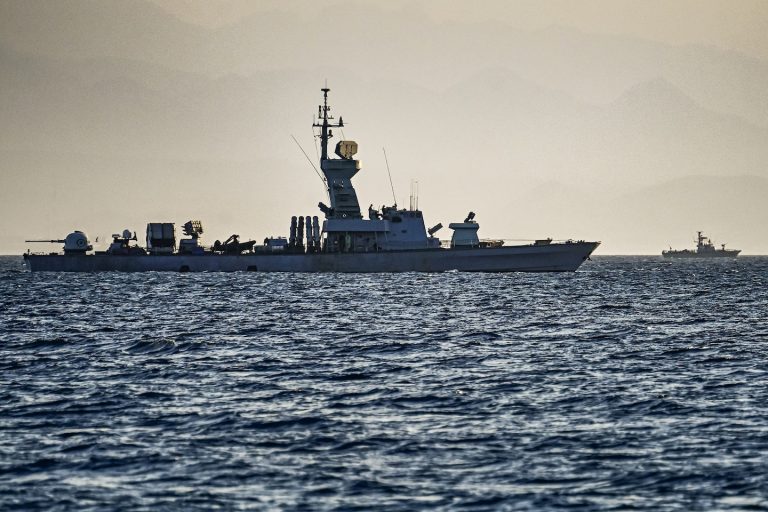Its CEO told Reuters last month that the port of Eilat, Israel's stronghold on the Red Sea, saw an 85 percent decline in shipping activity. He told the Jerusalem Post that without relenting, “unfortunately we will likely have to furlough workers.”
Firing missiles at commercial ships in the Red Sea, a chokepoint on one of the world's major sea routes, turns out to be a sure way to anger the United States and its allies: Nearly a fifth of shipments bound for the U.S. East Coast usually pass through the Red Sea, en route. to the Suez Canal, according to Moody's, and global shipping giants have begun sending ships long distances around Africa.
The Houthis stressed that since they began launching strikes in solidarity with the Palestinians under the Israeli bombing in the Gaza Strip, their primary goal was not to turn world trade upside down, but rather to exert pressure on Israel for a ceasefire in Gaza.
Mohammed Abdel Salam, a spokesman for the Houthis in Yemen, told Reuters on Friday that attacks in the Red Sea would remain focused on the siege of Israel and responding to US and British air strikes. He said that the attacks “represent pressure on Israel only,” and not “on any country in the world.”
While most of Israel's maritime trade passes through Haifa and other ports on the Mediterranean – taking into account the wider delays in global shipping caused by the Red Sea crisis but not necessarily any more than other ports – Eilat is a major entry point for some imports from East Asia. . , including electric cars from China, which make up most of the cars sold in Israel. The Times of Israel reported that the reduced ability of sellers to build inventory, with fewer cars arriving, could contribute to higher prices.
As for ships passing through the Suez Canal to Israel's busiest ports on the Mediterranean, many major transport companies have stopped traffic inside or outside the corridor, despite the global coalition that seeks to provide safe passage for ships, as well as the attacks led by The United States on the Houthis in Yemen. Danish shipping giant Maersk said this month that it would shift all its ships south — all the way around Africa — “for the foreseeable future.”
The shipping industry has responded to the Houthis' focus on shipping to Israel. Evergreen, the Taiwanese shipping giant, said last month that it would “stop accepting Israeli goods” immediately “for the safety of the cargo, ships and crew.” Last month, Maersk imposed additional fees on shipments to Israel to help cover rising insurance costs. Ultimately, consumers could bear the brunt of higher insurance rates.
Moshe Cohen, CEO of Yad Sarah, Israel's largest non-governmental lender of medical supplies, said that even small changes in the supply chain could pose major challenges to the supply of medical supplies amid an “unprecedented number” of war casualties. He said in an emailed statement that delays caused by Houthi strikes could “life-threatening critically needed supplies.”
The Israeli economy faces broader obstacles as it deals with the repercussions of its war in Gaza, which killed at least 24,927 people in Gaza and began after the October 7 attack launched by Hamas, which led to the deaths of about 1,200 Israelis. Thousands of workers were called to fight.
The Bank of Israel said this month that its forecast for Israeli exports in 2024 was 1 percent lower than its forecast in November, when the pace of Houthi attacks accelerated. This figure does not include diamonds and startups, and includes services such as tourism, which have declined amid the conflict. Civilian imports are expected to fall by 4 percent next year, down 5 percent from its forecast in November, according to the central bank. Imports from Asia, which usually pass through the southern mouth of the Red Sea, where the Houthis attack ships, are likely to be the most affected. China is Israel's largest exporter, accounting for more than 14 percent of Israeli imports in 2021, according to the Observatory of Economic Complexity, which tracks economic data.
The global economic impacts of Red Sea strikes, rather than the specific impacts on Israel, could become the largest source of pressure, contributing to a sense among Israel's allies that the entire region may turn to violence. As long as the war in Gaza continues, the risks of the situation in the Red Sea deteriorating further and regional skirmishes like the one taking place on the Lebanese border turning into war are “increasing dramatically,” said Dan Arenson, a geopolitical risk consultant at GS Heald. Global risk consulting. “I think the Biden administration understands that.”
Increasing ocean freight rates from China to North America are expected to push up consumer prices, according to a report released Tuesday by Freightos, a freight transportation company. Arneson said that if the US economy is damaged by Houthi attacks, this could prompt President Biden to pressure Israel to end its war in Gaza. He added: “It is clear that patience is running out.” Biden administration officials, including Secretary of State Antony Blinken, have in recent weeks adopted a tougher tone with Israel amid concern about the growing civilian death toll and escalating regional tensions.

